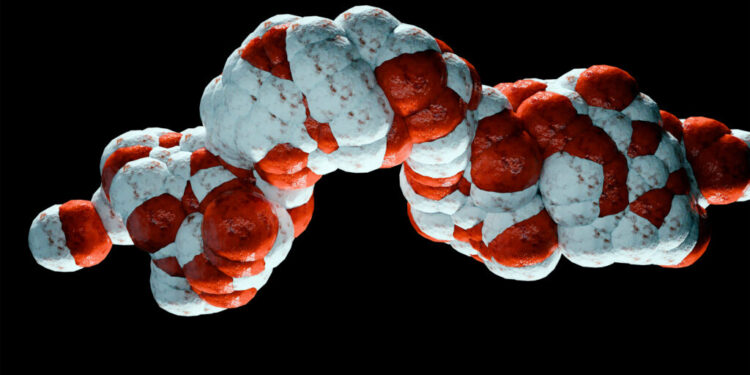The hormone leptin was discovered 30 years ago to much fanfare. Scientists hoped that leptin, which regulates body fat, could pave the way for obesity treatments. The results in mice were hailed as “miraculous,” and Amgen licensed the hormone for $20 million from Rockefeller University. But its initial promise failed to pan out, as treatments mimicking leptin in the body didn’t spur weight loss.
New data, published today in the journal Science Translational Medicine, may cast the hormone in a new light. The study showed that a molecule that targets a specific group of neurons with both GLP-1 receptors and leptin receptors produced more weight loss in mice than molecules mimicking either hormone on its own. The researchers also identified a comparable group of neurons in rhesus macaques, which have similar nervous systems to humans.
“We sometimes referred to this project as leptin’s last chance,” says Randy Seeley, the director of the Michigan Nutrition Obesity Research Center, who was part of the new study done in partnership with Novo Nordisk. “But what these data show is that despite the fact that leptin by itself doesn’t work very well, there is a possibility of using co-agonists as a therapeutic strategy.”
Leptin is a hormone that the body releases to signal to the brain that it has enough fat stored. The more fat a person has stored, the higher their leptin levels. When the hormone was first identified, researchers hoped molecules mimicking it could encourage the body to slow its appetite and eventually lead to long-term weight loss. It was initially favored over GLP-1s as a target because it regulates body fat, while GLP-1 regulates blood sugar.
“Leptin is physiologically essential, but pharmacologically has been disappointing. GLP-1 is not really physiologically essential for body weight but pharmacologically, has changed the field of obesity,” said Daniel Drucker, a senior scientist at the Lunefield-Tanenbaum Research Institute who researches treatments for type 2 diabetes but was not affiliated with the new study.
The new study identified a group of brain cells in the mouse hypothalamus, which is at the base of the brain and regulates hormones throughout the body, that have receptors for both leptin and GLP-1s. The researchers created a molecule that could activate both receptors, and found it was more effective in leading to weight loss than either on its own. When the receptor for either molecule was removed from the mice, the drug was less effective.
“There’s always been the question, ‘Could we get leptin to work?’” Drucker said. One potential reason leptin has not panned out as a therapy on its own is a phenomenon known as “leptin resistance.” That’s when the body becomes desensitized to the hormone at higher levels, causing a person to feel hungry and eat more even though they have sufficient body fat. If GLP-1 drugs can help someone lose weight and move them past leptin resistance, it’s possible leptin used in conjunction with them could lead to longer-lasting or more effective weight loss.
The new study doesn’t entirely answer the question of leptin’s potential, Drucker said, noting that it was a short-term study conducted over 18 days and focused on animals that don’t have a lot of fat.
If pharmaceutical companies or researchers wanted to move this idea forward, it would require showing that leptin is adding a benefit on top of GLP-1s, said Jens Holst, a professor of physiology at the University of Copenhagen. “The only thing they can hope for is that a mysterious interaction between the two peptides will show up once they do either extensive non-human primate studies or clinical studies in people, and that’s what is really necessary to convince anybody that this is a true advance,” he said.
Positive results in animal studies don’t always translate to results in humans. A study of success rates from 2011 to 2020 showed only 15% of metabolic drugs that started human studies reached the market.
“Whether this is just a one-off piece of nice, basic mouse science and genetics in a very elegant study showing the importance of these neuron responses to this molecule,” Drucker said, “or, all of a sudden, we will see this line of therapeutic reasoning being pursued, I don’t know.”


